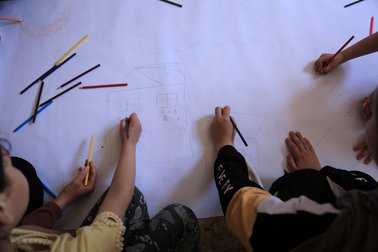Knowledge Hub
-
06/07/2022
Assessing stigma in low- and middle-income countries: A systematic review of scales used with children and adolescents
Stigmatization contributes to health inequalities, impacting the wellbeing of children and adolescents negatively. Addressing stigmatization requires adequate measurement. This systematic review synthesizes the content of scales used with children and adolescents in low- and middle-income countries (LMICs) across stigmas, and examines their comparability and level of cultural adaptation.
Read more
-
07/11/2022
Evaluation of competency-driven training for facilitators delivering a psychological intervention for children in Lebanon: a proof-of-concept study
The mounting evidence for effective delivery of psychological interventions by non-specialists in low- and middle-income settings has led to a rapid expansion of mental health and psychosocial support trainings globally. As such, there is a demand for strategies on how to train and implement these services to attain adequate quality. This study aims to evaluate the added value of a competency-driven approach to training of facilitators for a group intervention for children with severe emotional distress in Lebanon. Overall, it demonstrates the potential of competency-driven training (CDT), using standardised assessment of trainee competencies, to contribute to better training outcomes without extending the duration of training.
Read more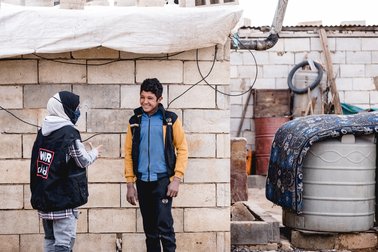
-
04/20/2022
Scalable psychological interventions for Syrian refugees in Europe and the Middle East: STRENGTHS study protocol for a prospective individual participant data meta-analysis
The World Health Organization’s (WHO) scalable psychological interventions, such as Problem Management Plus (PM+) and Step-by-Step (SbS) are designed to be cost-effective non-specialist delivered interventions to reduce symptoms of common mental disorders, such as anxiety, depression and post-traumatic stress disorder (PTSD). The STRENGTHS consortium aims to evaluate the effectiveness, cost-effectiveness and implementation of the individual format of PM+ and its group version (gPM+), as well as of the digital SbS intervention among Syrian refugees in seven countries in Europe and the Middle East. This is a study protocol for a prospective individual participant data (IPD) meta-analysis to evaluate (1) overall effectiveness and cost-effectiveness and (2) treatment moderators of PM+, gPM+ and SbS with Syrian refugees.
Read more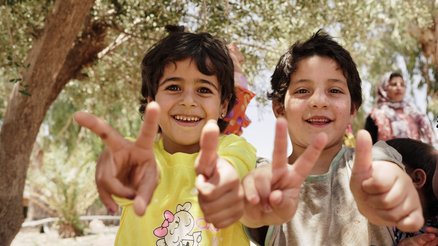
-
07/15/2022
Supporting parenting among Syrian refugees in Lebanon: a randomized controlled trial of the caregiver support intervention
This study evaluated the effectiveness of the Caregiver Support Intervention (CSI), which emphasizes caregiver wellbeing together with training in positive parenting. Here, a two-arm randomized controlled trial was conducted of the CSI with Syrian refugees in Lebanon, with an intent-to-treat design, from September 2019–December 2020. Overall, it found CSI reduced harsh parenting and caregiver distress, and demonstrated the value of addressing caregiver wellbeing as a pathway to strengthening parenting in adversity. These effects were achieved despite a pandemic-related lockdown that impacted implementation, a severe economic crisis, and widespread social unrest.
Read more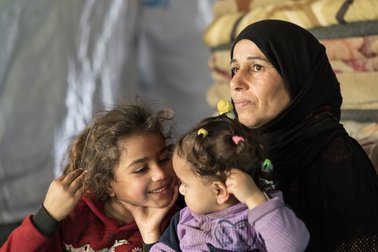
-
10/17/2022
Adverse childhood experiences and global mental health: avenues to reduce the burden of child and adolescent mental disorders
Mental disorders are one of the largest contributors to the burden of disease globally, this holds also for children and adolescents, especially in low- and middle-income countries. The prevalence and severity of these disorders are influenced by social determinants, including exposure to adversity. When occurring early in life, these latter events are referred to as adverse childhood experiences (ACEs). This editorial provides an overview of the literature on the role of ACEs as social determinants of mental health through the lenses of global mental health. While the relation between ACEs and mental health has been extensively explored, most research was centred in higher income contexts. Here, it is argued that findings from the realm of global mental health should be integrated into that of ACEs, e.g. through preventative and responsive psychosocial interventions for children, adolescents and their caregivers.
Read more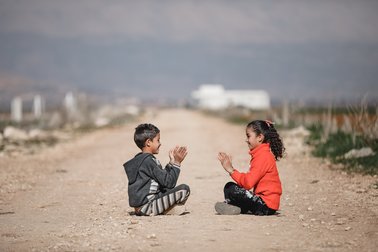
-
10/11/2022
Worlds of Pain: A process evaluation of the Caregiver Support Intervention with Syrian refugees in Lebanon
This paper reports on a process evaluation conducted as part of a randomized controlled trial of the Caregiver Support Intervention (CSI), a nine-session preventive group psychosocial intervention, with Syrian refugees in Lebanon. It analyzes the focus group data to explore the mechanism of impact of the CSI on caregiver wellbeing and parenting, as well as examining the impact of multiple adversities on the results of the trial, which was conducted in a context of widespread social unrest, a severe economic crisis, and the COVID-19 pandemic. Overall, the study underscores the limits of a stand-alone psychosocial intervention in a setting of extreme adversity, where unmet basic needs in nearly every domain of life continue to generate high levels of stress.
Read more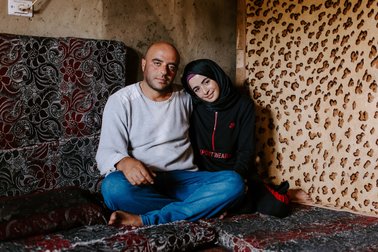
-
11/14/2022
Collaborative Coding in Multi-National Teams: Benefits, Challenges and Experiences Promoting Equitable Research
Within multi-national research collaborations, power dynamics often shape who is involved in which parts of the research process. The analysis phase of research has historically been framed as requiring expert perspective, excluding national or local researchers whose role is often limited to collecting data and transferring it to others to analyse. This paper describes and reflects on the process of collaborative coding across a multi-national team based in Lebanon and the United Kingdom, as part of a broader approach to co-production. Moreover, it contributes a reflexive analysis on the power dynamics and decision-making complexities involved in collaborative coding; emphasising the importance of investing in interpersonal relationships over time and prioritising less-centralised decision-making within research collaborations.
Read more